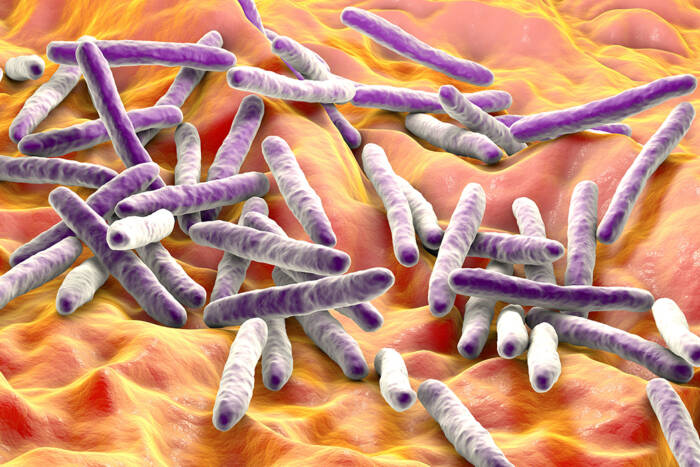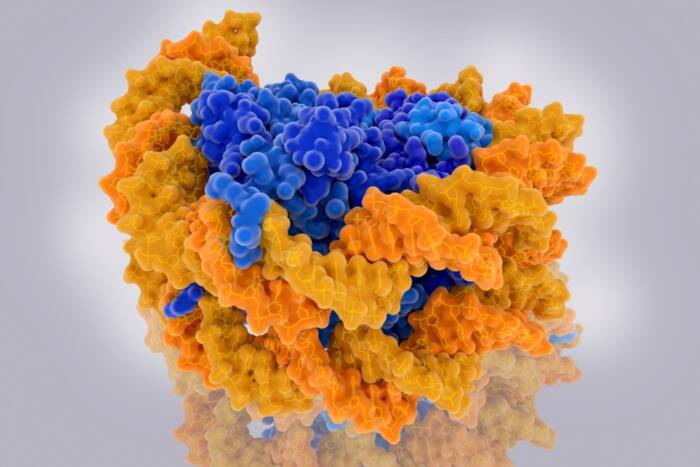Alumna Agata Smogorzewska named to faculty
by THANIA BENIOS
 Agata Smogorzewska, a physician-scientist whose research focuses on DNA repair and on the molecular basis of Fanconi anemia, a genomic instability syndrome that leads to leukemia and other forms of cancer, is Rockefeller University’s newest faculty recruit. The 2002 Rockefeller alumna, who studied under Leon Hess Professor Titia de Lange, will join the university in July as assistant professor and head of the Laboratory of Genome Maintenance.
Agata Smogorzewska, a physician-scientist whose research focuses on DNA repair and on the molecular basis of Fanconi anemia, a genomic instability syndrome that leads to leukemia and other forms of cancer, is Rockefeller University’s newest faculty recruit. The 2002 Rockefeller alumna, who studied under Leon Hess Professor Titia de Lange, will join the university in July as assistant professor and head of the Laboratory of Genome Maintenance.
Dr. Smogorzewska, who in addition to her Ph.D. received an M.D. from Weill Cornell Medical College as part of the Tri-Institutional M.D.-Ph.D. Program, has devoted her career to examining pathways that prevent cancer development, specifically those that repair DNA and induce replicative senescence, a process by which cells terminally arrest growth.
“In the case of Fanconi anemia, patients are very susceptible to a very specific DNA damage that is created by crosslinking agents, like the chemotherapy drug cisplatin,” says Dr. Smogorzewska. “I am interested in understanding how the DNA repair pathway in patients with Fanconi anemia works, the function of the proteins in that pathway and their contribution to cancer prevention.”
Dr. Smogorzewska honed her interest in molecular biology and biochemistry as an undergraduate at the University of Southern California, where she also received a summer research scholarship in biological research sponsored by Howard Hughes Medical Institute and a science and engineering research scholarship sponsored by the United States Department of Energy. After receiving her Ph.D. and M.D. she did a clinical pathology residency at Massachusetts General Hospital in Boston, and then joined the genetics department at Harvard Medical School, where she has been a postdoc since 2005 in the laboratory of Stephen Elledge.
As a postdoc, Dr. Smogorzewska identified and characterized FANCI, a gene that is mutated in a subset of Fanconi anemia patients. Dr. Smogorzewska’s research further revealed that this gene affects the repair of DNA. Without the proper protein, DNA isn’t repaired and the outcome is full-blown Fanconi anemia, a genetic disorder characterized by bone marrow failure, skeletal anomalies and increased incidence of tumors. Dr. Smogorzewska also completed two whole-genome genetic screens using RNA interference in human cells. One screen yielded a list of proteins necessary for survival after DNA crosslink damage, which can occur when an agent, either foreign or endogenous, reacts with at least two different letters in the DNA sequence. A second screen resulted in a list of proteins important for induction of replicative senescence. Both screens identified many novel components of these critical cellular processes.
In her Rockefeller laboratory, Dr. Smogorzewska will focus her research on understanding how several of these proteins regulate the activity of the Fanconi anemia pathway and other pathways necessary for DNA repair, and on identifying factors that promote survival in Fanconi anemia cells in the setting of DNA damage. “When a cell is confronted with DNA damage, it can either try to repair the genome or in the case of irreparable damage, trigger cell death or senescence,” says Dr. Smogorzewska. “My focus is on how the cell tries to repair itself in order to survive and on processes that are induced when the proper repair fails.”
“I am delighted that Agata will be joining the university’s faculty,” says President Paul Nurse. “Her research will shed light on the complex processes by which cells detect and repair damaged DNA — processes that have important implications for understanding cancer — and has the potential to help patients with genetic disorders.”


